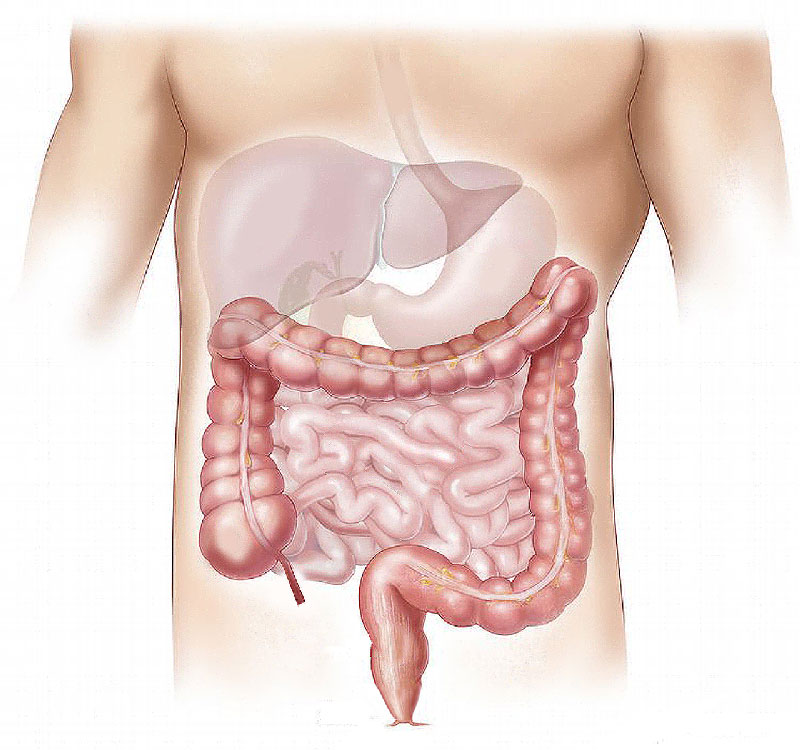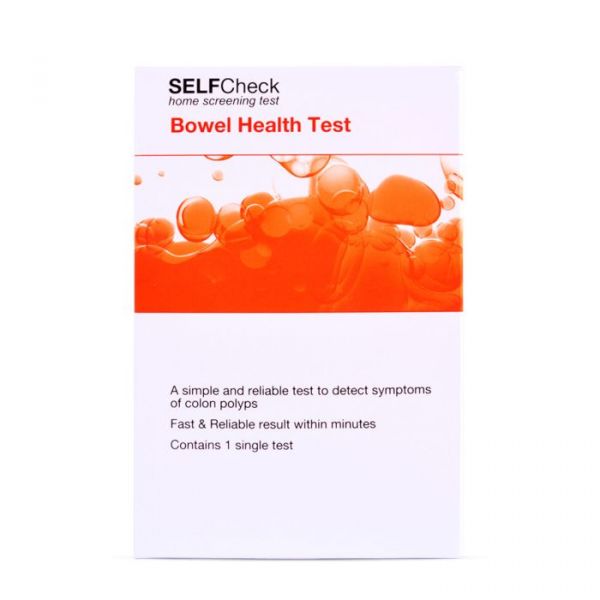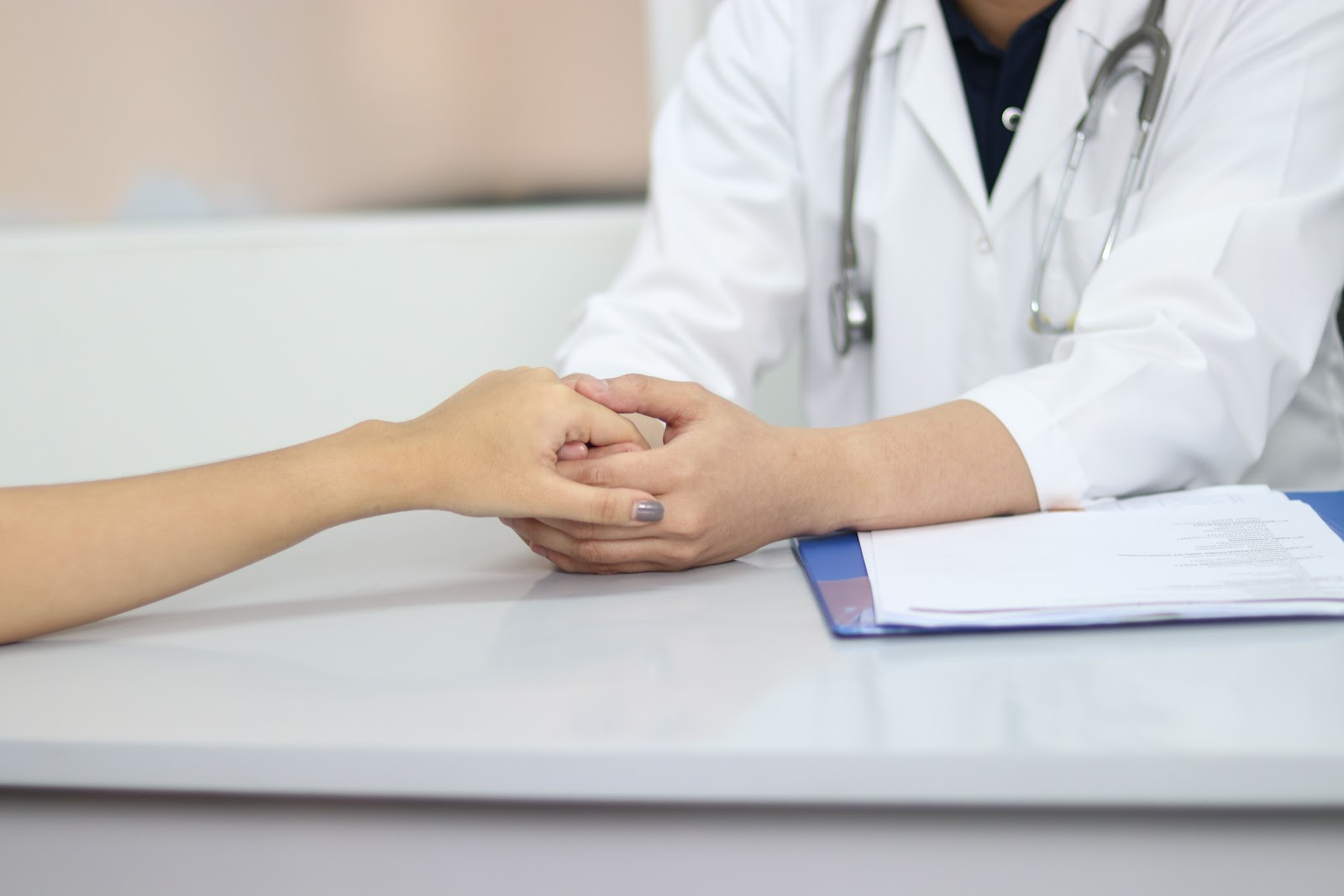Bowel cancer is the fourth most common cancer in the UK and one that is often misunderstood or mistaken for another condition, but it is one of the most curable cancers if caught early enough. With nearly 42,000 people diagnosed with this type of cancer each year more needs to be done to spread awareness of spotting the early signs and preventing this cancer developing. April is Bowel Cancer Awareness Month so we’re highlighting the importance of this particular cancer and clearing up the confusion surrounding different bowel disorders.
What is bowel cancer?

Bowel cancer is also known as colon or rectal cancer, however, this depends on where in the large bowel cancer starts. Cancer develops as a result of cells changing and multiplying which eventually forms a growth known as a tumour. Bowel cancer usually develops from growths known as polyps which are non-cancerous, to begin with but may develop into cancer. This type of cancer is more common in older people over the age of 60, however, there have been cases of bowel cancer in people in their 20s and 30s which have been misdiagnosed as IBS as some of the symptoms can be similar.
Blood in your stool can be due to a number of reasons so don’t panic if you’re passing blood, but do get it checked out. Blood in your stool is not always detectable with the naked eye and you may need to have this tested.
Symptoms to look out for

There are particular symptoms to look out for when it comes to bowel cancer. Many of us will experience an upset stomach from time to time may be from a dodgy takeaway or short illness, but when symptoms become persistent this may be a sign of something more serious. Common symptoms of bowel cancer include persistent blood in the stools, changes in bowel habits, and lower abdominal pain, bloating or discomfort. Any persistent changes in your health should be checked, or if things just don’t feel right and you’re losing weight or feeling extremely tired it’s worth visiting your GP to rule out any early signs of bowel cancer, and the earlier this cancer is caught the more treatable it is.
Could my symptoms be a sign of something else?
Most definitely, these symptoms don’t always mean cancer and they could be a sign of something less serious. Blood in your stool is a sign of many other conditions such as haemorrhoids (piles) which usually clear on their own or can be easily treated with topical creams. Changes in bowel habits can also be a sign of minor conditions such as diarrhoea if the stools are loose, or constipation if the stools are hard which are usually caused by certain types of food. We all know our own bodies and if something doesn’t feel right or is lasting a long time this should prompt you to get it checked out.
However, it’s also important to be aware that these symptoms may be a sign of cancer. Many people have been misdiagnosed as having IBS or other bowel-related conditions, when in fact they had symptoms of bowel cancer. This doesn’t mean to suggest that diagnoses of IBS are wrong, but in some cases, the symptoms can be mistaken for this condition. You know your body better than anyone and if you’ve been diagnosed with IBS but you’re doubtful of this, speak to your GP about bowel cancer screening if only just for peace of mind.
How is bowel cancer diagnosed?
Many people are put off visiting their GP if they have symptoms of bowel cancer as they’re worried about the process of diagnosis. Some types of bowel cancer tests can be uncomfortable but your healthcare professional will ease this as much as possible. If you have persistent symptoms of bowel cancer a GP visit is the first step to diagnosis. There are tests you can carry out at home before you see a GP. The SELFCheck Bowel Health Test Kit is not necessarily a bowel screening test but it can help in detecting the early signs of cancer.

This test is designed to detect polyps by testing for blood in your stool which may be a symptom of polyps. The whole test is carried out at home and results are produced in 15 minutes. While testing at the hospital is more accurate, this test is a way of encouraging a person to visit their GP for further testing particularly if the test comes back positive. If you have a positive result you’ll be more inclined to go and get a proper diagnosis.
There’s also an at-home bowel cancer screening test available for those over the age of 55. This test involves taking a stool sample and sending it to a laboratory to look for minute amounts of blood.
If bowel cancer is suspected you may need to have more in-depth tests which are slightly more invasive. This is what makes people feel anxious and apprehensive about getting tested. Some people may even feel too embarrassed to get tested and these are all normal feelings, but testing is necessary for detecting cancer or putting your mind at rest.
Your initial consultation with your GP will involve talking through your symptoms and possibly examining your tummy and inside your rectum by inserting a gloved finger into the back passage. This sends alarm bells ringing for a lot of people but it is a quick and painless procedure and your doctor will make you feel as comfortable as possible. From this examination, your GP may have reason to refer you to the hospital for further testing. Further tests provide more in-depth results and involve inserting a thin tube with a camera at the end into the bowel through the rectum to take images of inside the bowel. These tests are known as flexible sigmoidoscopy, a colonoscopy, and a CT colonography.
How to deal with a bowel cancer diagnosis

Any cancer diagnosis is devastating to you and your loved ones and can be extremely difficult to cope with. Some people may go into a state of shock when finding out they have cancer and it can be hard to comprehend what is happening to you. It’s important to remember to try to stay calm and gather all of the information about your condition and the plan for treatment, however, it’s normal not to take all of this information in initially and you can ask questions at any stage.
Getting a diagnosis may come as a relief for many particularly if they have had a long battle with symptoms without knowing the cause, and so diagnosis is the first step to getting better. Diagnosis is likely to affect you emotionally and there is lots of support available to help you get through this difficult time. Some people find support from people other than their friends and family to be the most helpful. You can get support from your doctors and nurses and there are lots of charities that do amazing work to support cancer patients. Macmillan is just one charity which has lots of advice and information about your cancer including treatment, how to cope, and even help with financial matters.
Knowing as much information about your particular cancer is helpful, and discussing a treatment plan with your doctor can often make people feel better and more hopeful. People cope with bowel cancer in different ways and this is usually dependant on the stage of your cancer, if it’s at a later stage you may find it more difficult to cope emotionally. You should discuss all your options with your doctor including treatment, pain relief, and aftercare.
Bowel cancer is usually treated with surgery to remove the tumour and this may be followed by chemotherapy or radiotherapy which has its side effects. The aftermath can be the most difficult and when you will need the most support, for many this is a time when everything that has happened sinks in which can cause some emotional problems.
Ways to cope with bowel cancer include:
Gathering as much information as you can about your cancer
Ask for help if you need it
Talk to friends, family, health professionals and attend support groups
Call support helplines any time you’re feeling low, worried, or when you need advice
Here is a list of cancer support helplines which offer confidential support from specialist advisers and nurses:
Bowel cancer doesn’t just affect you physically, there is a whole range of emotions you will go through from being upset and low to feeling optimistic at times, the whole ordeal can feel like an emotional rollercoaster. Cancer can affect your relationships, work-life, and finances so it’s important to get the support you’re entitled to.
Knowledge is power so being aware of bowel cancer and knowing the symptoms gives you more of a chance of fighting it when you do something about the symptoms early enough. That’s why we’re encouraging people to be aware of their bowel health this Bowel Cancer Awareness month and beyond.










